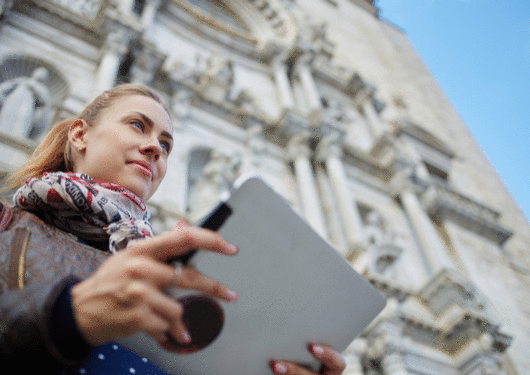
Visit Our Sponsors |
|
|
|
|
|
|
|
|
|
|
|
|
|
|
|
|
|
|
|
|
|
|
|
|
|
|
|
|
|
|
|
|
|
|
|
|
|
|

Just as important, his wife will be able to work as soon as they move to Toronto this summer, and they'll be able to stick around for three years after he graduates. "Of course you want to be at Stanford or Columbia, but you have to place your bets," says Paolucci, 31. "Top talent is going to go where it's welcome."
The Graduate Management Admission Council, which administers business school entrance exams, says about two-fifths of 547 foreign applicants it surveyed in March were less likely to pursue a graduate management degree in America as a result of the 2016 election. And two-thirds of 86 U.S. MBA programs queried this spring have received fewer international applications this year than last, the GMAC says. Tim Mescon, a vice president at AACSB International, a B-school accrediting group, attributes it to the “Trump effect.” With increasing concern over the president’s travel ban, anti-immigration rhetoric, and proposals to tighten visa rules, “students and their families begin to look for alternatives,” he says. “This is a very dangerous scenario for higher education in the U.S.”
The most prestigious of the 700-plus American B-schools are unlikely to be significantly affected, but lower-ranked institutions could suffer, says Chioma Isiadinso, a former admissions officer at Harvard Business School, who runs an MBA admissions consulting company called Expartus. Many lesser-known schools are highly dependent on tuition from international students, she says, and the prospect of a decline in their numbers “is keeping deans and admissions directors up at night.”
What’s bad for U.S. programs is good for their rivals abroad, which are likely to see increases in international enrollment, says Eric Cornuel, chief executive officer of EFMD, a group in Brussels that accredits B-schools.
RELATED CONTENT
RELATED VIDEOS
Timely, incisive articles delivered directly to your inbox.

